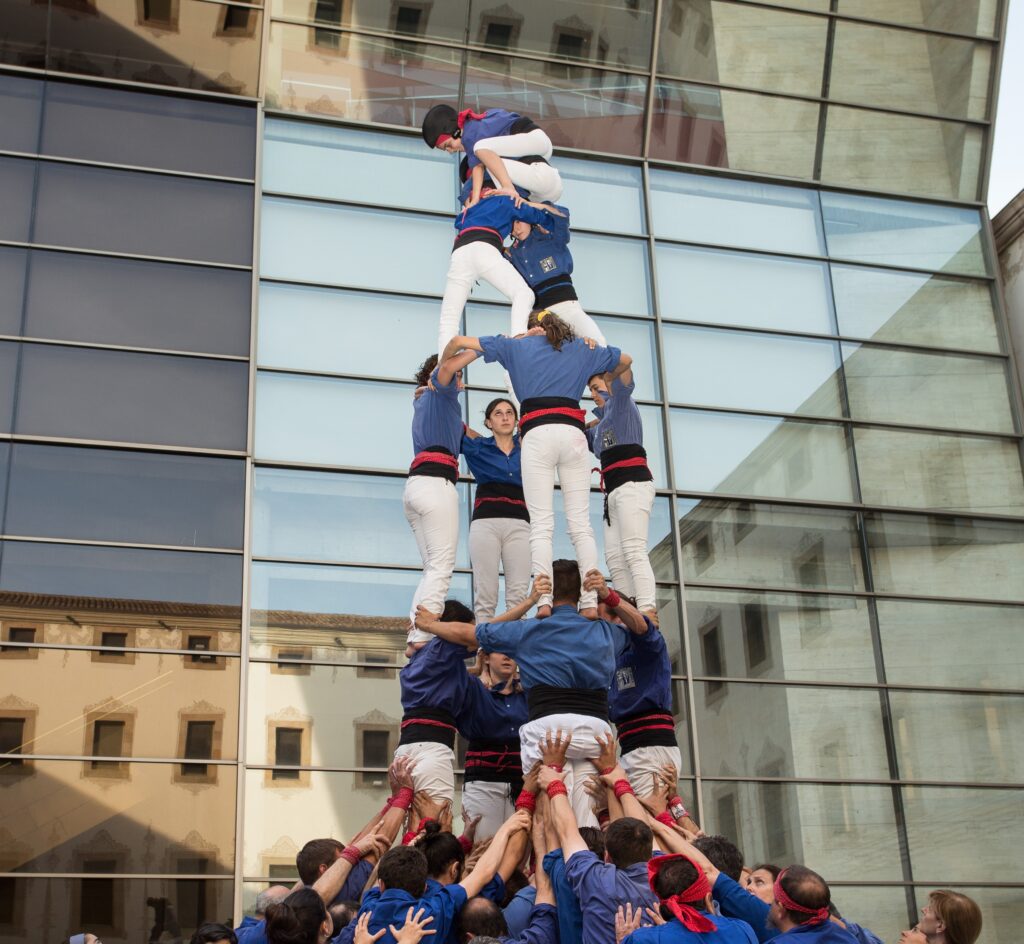ERC Advanced Grants 2024
· Mario Armiero (UAB)
· Jan Eeckhout (UPF)
· Leo Wanner (BSC-CNS)
Premi Ciutat de Barcelona 2024
· Jose A. Garrido (ICN2)
· Kostas Kostarelos (ICN2)
· Rachel Lowe (BSC-CNS)
· Laura Soucek (VHIO)
Premio Rei Jaume I – 2025
· Jan Eeckhout (UPF)
· Núria López-Bigas (IRB Barcelona)
· Victoria Reyes García (UAB)
Premio Fundación Real Academia de las Ciencias al Joven Talento Científico Femenino 2024
· María Escudero (ICN2)
ERC Consolidator Grants 2024
· César Rodriguez-Emmenegger (IBEC)
· Arnau Sebé-Pedrós (CRG)
ICREA Research Professors amongst the 1% most cited researchers of 2024 worldwide
ERC Synergy Grants 2024
· Diego Blas (IFAE)
· Mariona Graupera (IJC)
· Kostas Kostarelos (ICN2)
Web Development
RESULTADOS DESTACADOS
Expanding the Canon of Medieval Philosophy
Fidora Riera, Alexander (UAB)
HumanitiesHousehold Differences and Economic Stability: The Power of TANKs
Debortoli, Davide (UPF)
Social & Behavioural SciencesAnalysis of Heating Schemes in ITER
Mantsinen, Mervi Johanna (BSC-CNS)
Engineering SciencesNew drug to inhibit the nervous system activity in vivo with light
Gorostiza Langa, Pau (IBEC)
Life & Medical SciencesUnderstanding singularities in the Stefan problem
Ros Oton, Xavier (UB)
Experimental Sciences & MathematicsGeographic sources of ozone air pollution and mortality burden in Europe
Pérez García-Pando, Carlos (BSC-CNS)
Experimental Sciences & MathematicsA novel universal light-based technique to encode information in quantum materials
Biegert, Jens (ICFO)
Experimental Sciences & MathematicsEmerging health threats from climate change in Europe
Lowe, Rachel (BSC-CNS)
Life & Medical Sciences
ICREA ES UN INSTRUMENTO DEL GOBIERNO CATALÁN
ICREA es una institución publica financiada al 100% por la Generalitat de Catalunya.
ICREA es una institución abierta. Trabaja codo con codo con las universidades y centros de investigación catalanes para integrar a los profesores de investigación ICREA en el sistema de investigación catalán.
ICREA ofrece puestos permanentes y titulares a investigadores de todo el mundo para que vengan a trabajar a Cataluña.
A lo largo de los años, estos puestos se han convertido en sinónimo de excelencia académica mundial.
COMUNIDAD ICREA
Los Profesores de Investigación de ICREA forman una vibrante comunidad de científicos e investigadores en todas las áreas del conocimiento que contribuyen al avance de la humanidad explorando, interpretando y cuestionando.

UNIVERSIDADES Y CENTROS DE INVESTIGACIÓN EN CATALUÑA
ICREA no tendría sentido sin la densa red de instituciones anfitrionas que participan activamente en la investigación en Cataluña.
LOS NUEVOS ICREAs
ICREA es una comunidad en expansión. Cada año, nuevos investigadores e investigadoras se incorporan a ICREA tras la convocatoria. Os presentamos a nuestras incorporaciones más recientes. Queremos darles a todos una muy cálida bienvenida a la comunidad ICREA: Benvinguts!
Böke, Elvan
Life & Medical Sciences
Centre de Regulació Genòmica (CRG)
Our research focuses on the strategies and mechanisms that allow egg cells to evade ageing for decades, and why these strategies eventually fail with advanced age.
Eskicioglu, Cigdem
Engineering Sciences
Universitat Politècnica de Catalunya (UPC)
As an environmental engineer, I develop technologies to convert waste into valuable resources, aiming for a biorefinery and circular economy. My research tackles industrialization and urbanization challenges by designing advanced reactor processes for contaminant removal and waste-to-biofuel conversion.
Gualtieri, Marco
Experimental Sciences & Mathematics
Universitat Politècnica de Catalunya (UPC)
I work in geometry and mathematical physics, with a focus on developing mathematical structures with applications to quantum field theory. My main contributions have been in generalized complex and Kähler geometry, Poisson geometry, singular differential equations and discrete geometry.
McCready, Elin
Humanities
Universitat Autònoma de Barcelona (UAB)
Elin McCready works mainly in linguistics and philosophy of language and has published on a variety of topics in the formal analysis of linguistic meaning. She obtained a PhD in Linguistics from the University of Texas at Austin in 2005 and worked at Aoyama Gakuin University from 2006 to 2024.
Roca Aparicio, Anna
Life & Medical Sciences
Institut de Salut Global Barcelona (ISGlobal)
As an infectious disease epidemiologist, I design tailored interventions to reduce viral & bacterial mortality among the world’s most vulnerable populations. My research integrates epidemiology, microbiology and genomics to investigate transmission and develop strategies that drive global impact.
INFORME ANUAL
Estos informes de investigación resumen el trabajo realizado durante un año.
Las publicaciones son la parte más visible de la investigación, pero también hay que tener en cuenta otros elementos que muestran la contribución de nuestros investigadores a la mejora del sistema catalán de I+D: creación de nuevos equipos de investigación y apertura de nuevas líneas de investigación, consolidación de equipos y áreas de investigación ya existentes, tutorización de tesis doctorales, docencia en todos los niveles académicos, etc.


